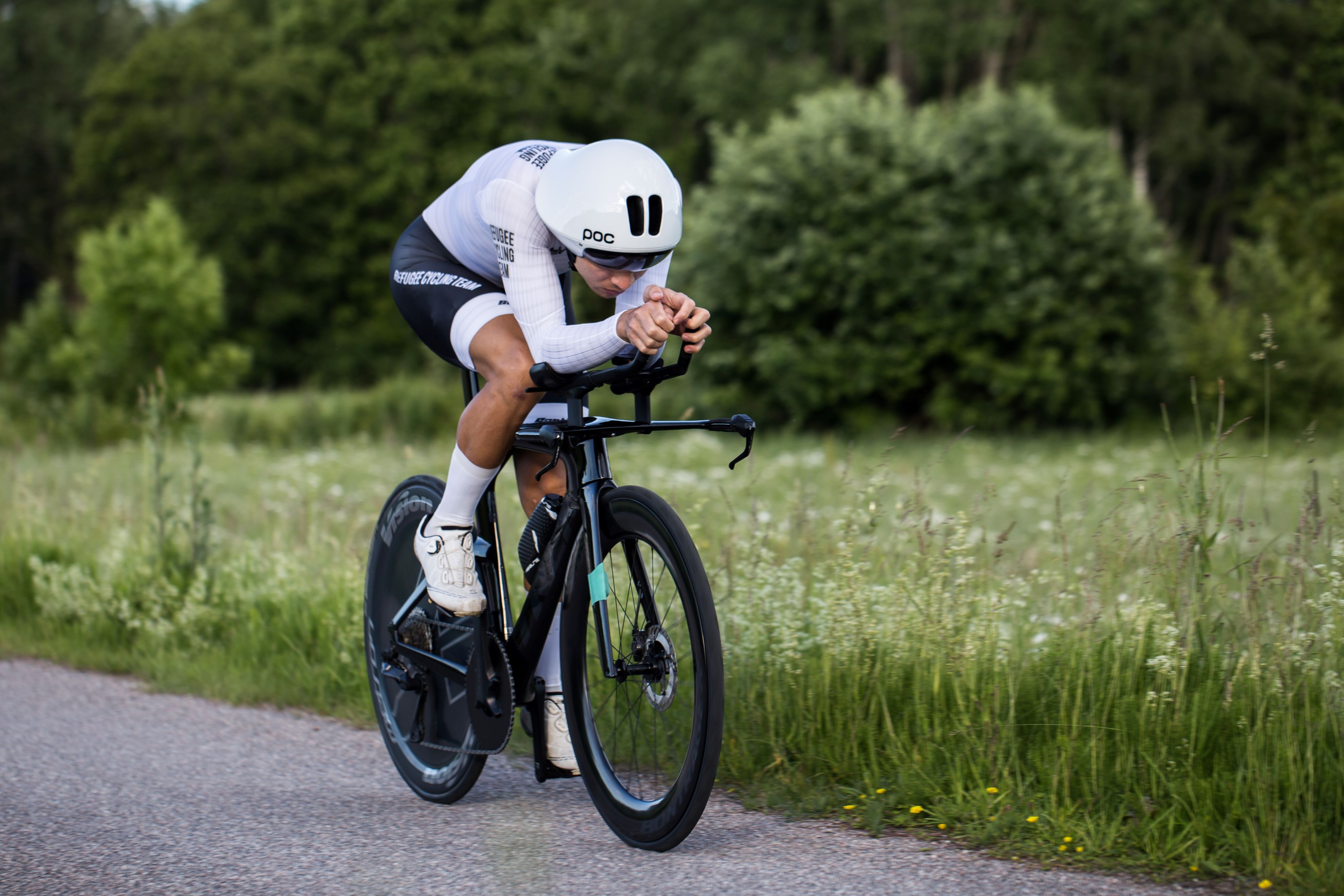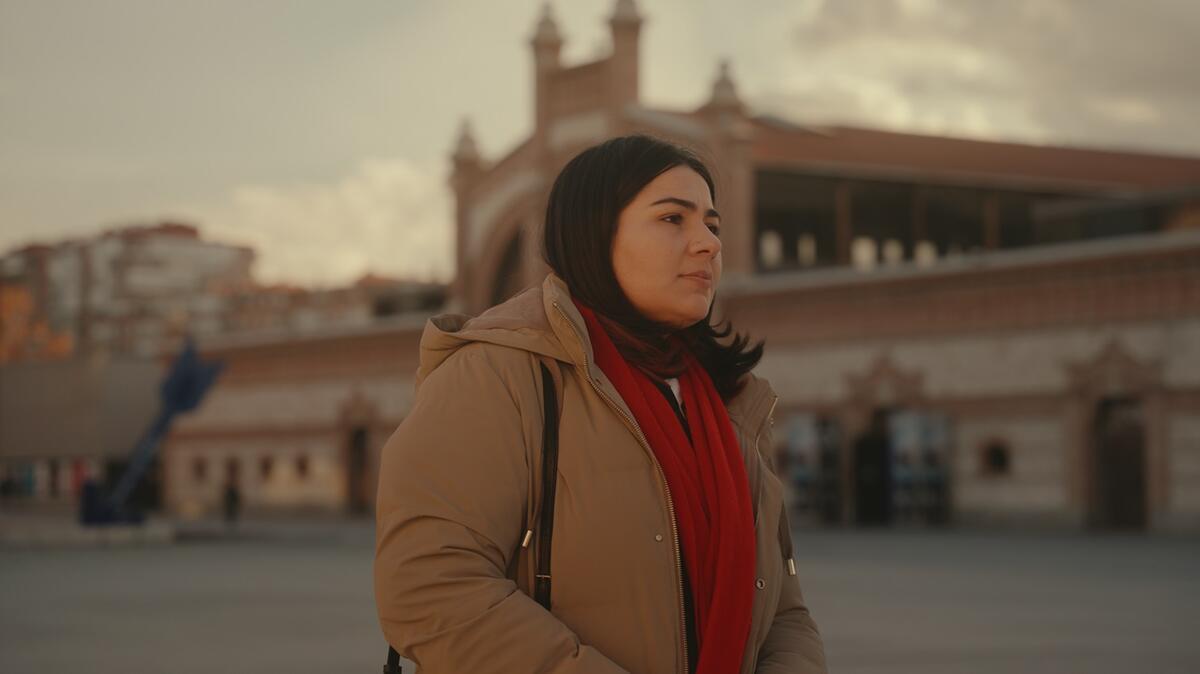Olympic Refugee Athlete Amir Ansari: “Cycling saved my life”
Olympic Refugee Athlete Amir Ansari: “Cycling saved my life”

Amir Ansari from Stockholm Cycling Club is one of the 37 athletes who are part of this year’s Refugee Olympic Team.
When 24-year-old Amir got the official call from the International Olympic Committee (IOC) informing him that he would be part of the 2024 Refugee Olympic Team, he could hardly believe what he was hearing. Since he fled to Sweden and started cycling, only eight years earlier, he had dreamed of one day making it to the Olympics, but that dream had often seemed out of reach due to the struggles he has been through during his refugee journey.
The opportunity to compete in Paris and represent the 120 million people who have been forced to flee therefore means a lot to him:
“It is a big honour and responsibility to be part of the Refugee Olympic Team. I am one of those who made it to safety, but many lost their lives on the way. It feels good that I can represent them, and I hope I can do it in a way that makes them proud,” says the refugee athlete.
Cycling became his lifeline
Amir’s journey to the 2024 Paris Olympics has been far from easy.
In 2015, he was forced to flee his home due to persecution. The long journey to Sweden took him on dangerous routes and terrain through Iran, Türkiye, and Greece and there were several times along the way where he feared for his life.
“When we crossed the water between Türkiye and Greece there were people who punctured our rubber boat because they wanted us to go back, but there was no going back for me. I was scared because I did not know how to swim,” he recalls.
Amir eventually arrived safely in Sweden, but the dangerous journey to safety left him with mental scars. Like many other refugees and asylum seekers, he experienced emotional distress. These are often natural reactions to adverse and traumatic events related to conflict, displacement, and uncertainty about the future. Amir was therefore in a very dark place when a friend of his introduced him to the Stockholm Cycling Club. The club turned out to be the lifeline he needed after being faced with so many hurdles.
“Cycling helped me forget about my depression and fears because when I am on the bike, I do not think about anything else. I am just enjoying the moment,” Amir explains.

Amir Ansari with his first bike. The bike was given to him by a member of Stockholm Cycling Club shortly after he moved to Sweden.
Amir’s trainer, Pierre Moncorgé, has witnessed firsthand what a difference cycling has made in the young athlete’s life.
“I met Amir in 2016 when he joined the Stockholm Cycling Club. He was a pretty shy teenager at that time, and you could see how his refugee journey affected him. He was fragile mentally. However, as soon as he was on the bike or around within the club activities, he was so happy to be there, always smiling and kind to everyone,” Pierre recounts.
An impressive journey
It did not take long for the members of the Stockholm Cycling Club to notice Amir’s cycling talent. While he started out racing for the club’s junior team, he was quickly moved up to the senior level, and in 2017 he joined their elite team. Since then, he has participated in national and international championships in time trial and road race competitions as part of the Stockholm Cycling Club team and the Union Cycliste Internationale (UCI) Refugee Team.
Pierre has been impressed by Amir’s journey.
“He has developed a lot. He had everything to learn: training, race tactics, nutrition, recovery, and so on. Although he did some mountain bike when he was young, 2017 was pretty much a year zero for him in cycling,” says Pierre.
“But he is easy to coach because of his dedication. Despite the notoriously bad weather and training conditions we have here in Sweden, he always sticks to the plan, while being good as well at listening to himself and adjusting, when necessary.”

“My journey taught me to be tough, to not give up, and to keep fighting which is something I can use in cycling, ” says Amir Ansari.
Never give up
Amir’s story is a testimony to the transformative impact sports can have on the well-being of refugees and other forcibly displaced people. Cycling became Amir’s beacon of hope when he faced uncertainty about his future. It helped him create new friendships, learn a new language, and he gained a second family in the process: the Stockholm Cycling Club. The club’s members have generously lent him material and equipment, brought him around to training and club activities, assisted him with his asylum process, and much more.
Amir hopes his story can inspire other refugees and the communities that welcome them:
“My message to all the refugees is to keep fighting, and never give up. My message to all others is: Help each other. It does not matter if that person is a refugee or not. Your help can change the whole life of that person, just like it did for me.”
Want to make refugees proud
The 2024 Olympics will be the highlight of Amir’s cycling journey so far. He knows he will face tough competition in Paris, where he will compete against professional cyclists, but his goal is clear:
“My expectation is to do my best. To perform better than I did yesterday and to make all refugees and myself proud.”









